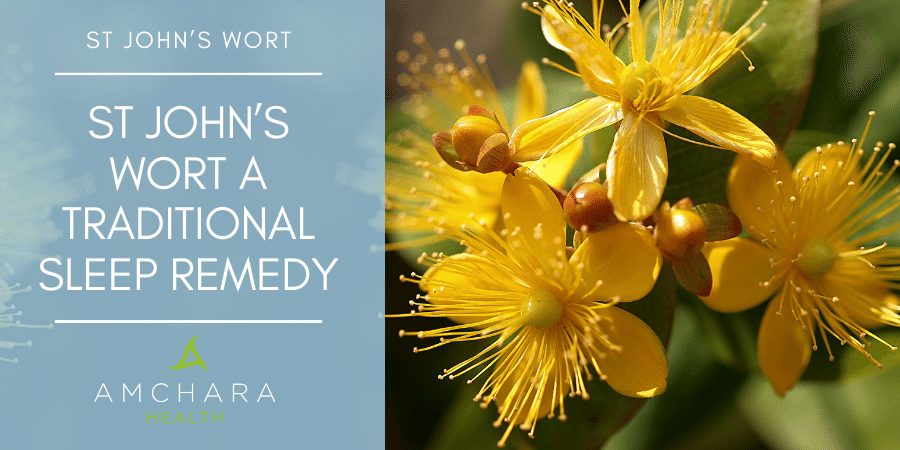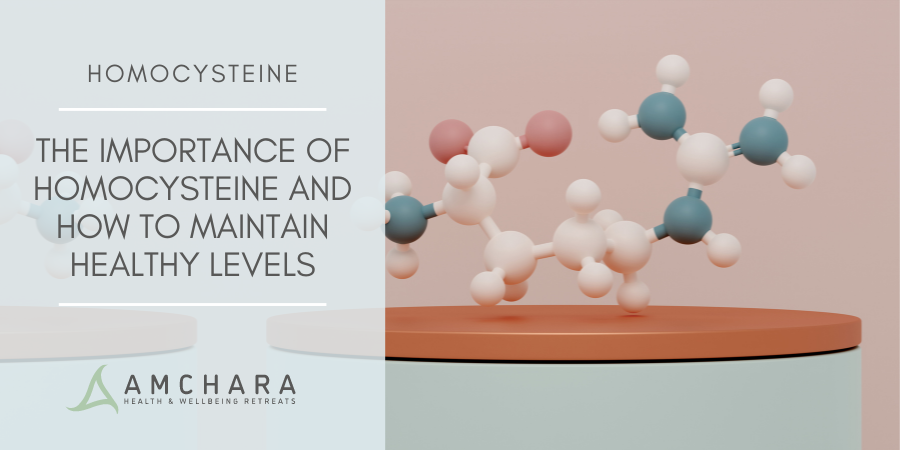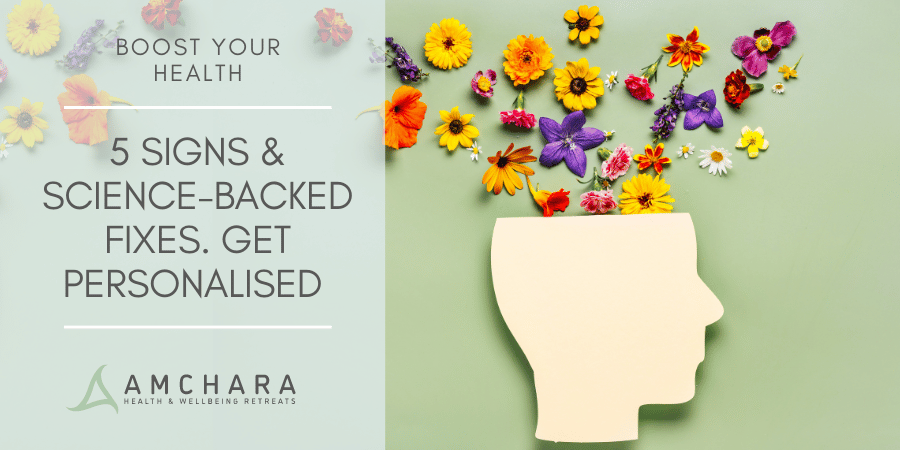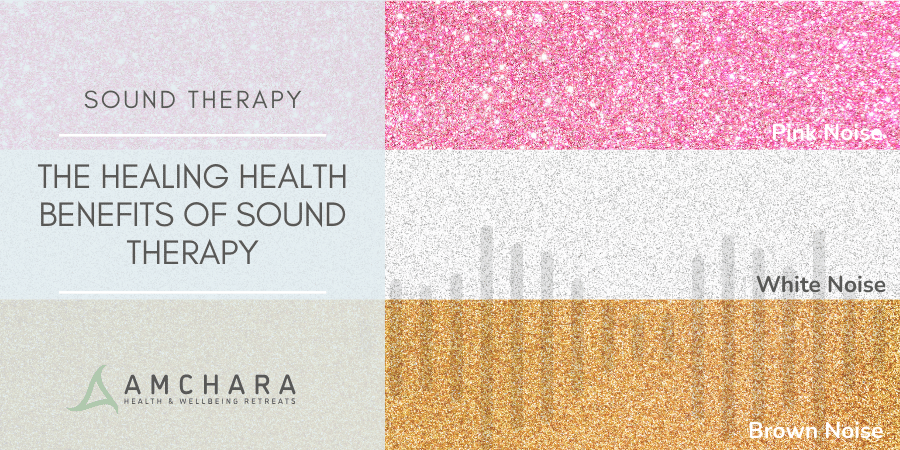The need for sufficient and good quality sleep is a basic biological drive as important as hunger and thirst – as such it is an essential part of life.
On average humans sleep for one third of their lives and yet some of us are unable to achieve the benefits of deep restorative sleep due to an increasing prevalence for insomnia.
According to the Great British Sleep Survey in 2012, over a third of UK adults suffer from disturbed sleep which leads to emotional distress and deteriorating health. (1)
This article explores the potential benefits of the herbal sleep remedy, St John’s Wort.
We look at the evidence behind its benefits for sleep, what the best sources are and any adverse effects you should be aware of.
The Mysteries of Sleep
According to Saper et al. (2001), the body regulates sleep by opposing wake-triggering and sleep-triggering mechanisms, located in the hypothalamus of the brain.
Experiments using electrical and chemical stimulation in this area have confirmed these findings. (2)
Many sleep promoting substances are shown to work in the hypothalamus.
These neurons produce an inhibitory amino acid known as GABA and another inhibitory substance known as galanin.
When sleep begins, these neurons become increasingly active and work to inhibit other biochemical systems that trigger arousal. (2)
There are a number of neurotransmitters at work in the brain responsible for keeping you awake.
These include:
- Norepinephrine (adrenaline)
- Dopamine
- Serotonin 5-HTP
- Acetylcholine
- Hypocretin
- Histamine
The calming substances that help to promote sleep include:
- Gamma aminobutyric acid (GABA)
- Adenosine
- Glycine
- Melatonin
Orthodox Medical Treatments to Aid Sleep
Conventional treatment for insomnia includes medications that exert a depressant effect on the central nervous system.
Three generations of hypnotic drugs are based on the inhibitory actions of GABA.
The drugs act to decrease waking and increase slow wave sleep as well as enhance the intermediate stage of sleep. (3)
Most of the drugs prescribed for insomnia involve a degree of risk for addiction and overdose. (2)
These risks often mean people look to alternative therapies, such as herbal remedies, to treat sleep disturbances.
Over the counter sleep aids are becoming increasingly popular and St John’s Wort is one of these.
ST John’s Wort (Hypericum Perforatum)
St John’s Wort, also known as Hypericum perforatum, is an aromatic perennial herb native to Europe, but commonly found growing in many other parts of the world.
It thrives in open fields and roadsides – you may even find it in your own back garden.
There are around 400 species in the genus which belongs to the Clusiaceae family.
The herb’s species name, perforatum, comes from the Latin perforatus, meaning perforated with small holes.
The explanation for this stems from the leaves, which contain tiny transparent oil glands that look like holes and can be seen when held up to the light.
These glands contain a chemical called hypericin, thought to be one of the herb’s most important medicinal ingredients.
St John’s Wort has been valued for its therapeutic properties as far back as Roman times.
Its roots, leaves, seeds, flowers, stems, bark and fruit have all been used to treat insomnia and depression. (2)
It is one of the most popular and well studied herbal treatments in relation to mental health problems.
The results from a meta-analysis, which looked at 23 randomised trials involving 1757 patients, showed that it was more effective than placebo and had similar effects as those found from conventional antidepressants for treating mild to moderate depression. (4)
Because anxiety and depression are associated with sleep disruption and poor quality sleep, St John’s Wort has also been recommended as a sleep aid.
Early animal studies in mouse models (Kumar & Singh 2007), suggested that St John’s Wort had potential for therapeutic use in the management of sleep deprivation and anxiety. (5)
Recent studies in humans have also indicated its possible use for improving sleep by increasing the slow-wave stage of sleep, i.e. sleep quality.
One trial, involving 21 healthy subjects, reported an increase in the length of time it took to transition into deep sleep after consuming a single dose of St John’s Wort.
Another cross-over double-blind placebo controlled study, in 12 elderly volunteers given high dose hypericum extracts, suggested that St John’s Wort brought about an increase in deep sleep but had no effect on other sleep symptoms. (4)
Scientists are still unclear about how St John’s Wort acts to induce sleep, but most studies suggest that hypericum may be able to modify some aspects of serotonin and noradrenalin function, the neurotransmitters involved in sleep regulation. (6)
It is also thought St John’s Wort may stimulate GABA receptors, which as mentioned earlier are considered a gateway to sleep inducing chemicals in the brain.
Choosing Effective Supplements
Herbal extracts such as St John’s Wort are preparations intended to concentrate the strength of the herb and are available as tinctures, fluid extracts and solid extracts.
A standardised herbal extract is an extract which, instead of just reflecting the concentration of the extract itself e.g. 4:1, actually guarantees the potency of one or more active compounds within the herb.
Non-standardised extracts do not reflect the potency of the herb with respect to the active compounds that provide the benefits most attributed to the herb.
With regard to St John’s Wort, all solids and liquid extracts are standardised to contain a specified amount of hypericin, one of the herb’s active ingredients.
Most solid and liquid extracts of St John’s Wort are standardised to contain 0.3 per cent of hypericin by weight i.e. a 300mg capsule will contain 0.9mg of hypericin.
Most of the recent clinical studies in which St John’s Wort has been proved effective in treating depression have used an extract that has been standardised to contain 0.3 per cent hypericin.
Adverse Effects, Drug Interactions
In general, St John’s Wort is well tolerated, but the most common side-effects include sedation, dry mouth, dizziness, gastrointestinal upset, restlessness, and increased sensitivity to sunlight.
It is recommended that elderly people taking St John’s Wort use protective eyewear when exposed to the sun. (8)
Research from the National Institutes of Health (NIH) warns that St John’s Wort may reduce the effectiveness of several drugs, such as serotonin re-uptake inhibitors and monoamine oxidase inhibitors, by speeding up activity in a key pathway responsible for their breakdown. (7)
What happens is that blood levels of these drugs decrease because the body breaks them down faster, making the drugs less effective.
Other drugs it may affect include:
- Asthma inhalants
- Decongestants
- Diet pills
- Tryptophan
- Tyrosine
- Contraceptives
- Aids medications
Take home message
Because of the risks associated with St John’s Wort it is not advisable to use it in combination with other medications and it should not be taken as a replacement for prescribed medications.
Always consult with your GP first.
Pregnant or lactating women should not take this herb at all.
If you are considering taking St John’s Wort as a sleep aid you should seek guidance from a qualified an Amchara Personalised Health practitioner who can offer expert help to ensure that you are taking safe and appropriate dosages.
They can also help guide you towards nutritional and lifestyle changes to address some of the sleep problems you may be experiencing.
We believe that sharing knowledge and experience is an important part of achieving optimal health and would love to hear your views and experiences.
Have you tried St John’s Wort? Get in touch.
READ THIS NEXT:




